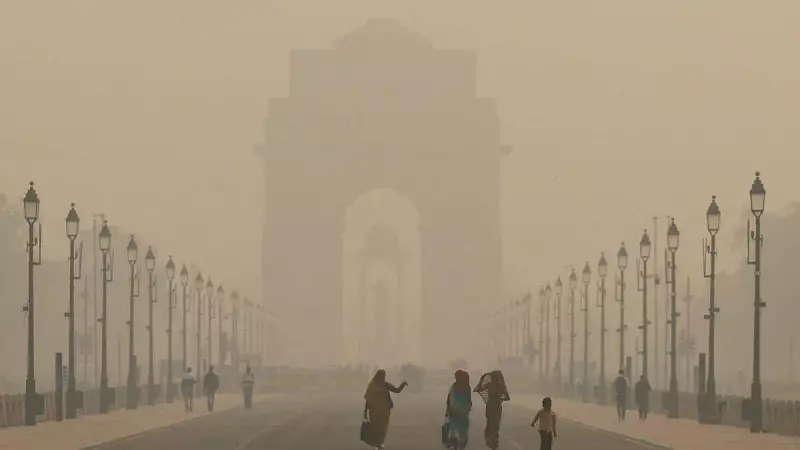
Delhi residents woke up to a dual environmental challenge on Monday as the city recorded its coldest morning of the season while battling dangerously polluted air. The capital's air quality remained firmly in the 'very poor' category, with several areas slipping into the more severe 'severe' classification.
Monitoring Stations Paint Grim Picture
Data retrieved from the Central Pollution Control Board's Sameer application revealed alarming statistics about the city's atmospheric conditions. Five separate monitoring stations reported air quality measurements that fell into the 'severe' category, indicating health emergency conditions that affect even healthy people and seriously impacts those with existing diseases.
The situation appeared widespread across the metropolitan area, with twenty-nine additional monitoring stations recording 'very poor' air quality levels. These stations showed readings consistently ranging between 300 and 400 on the Air Quality Index scale, far exceeding safe limits established by environmental authorities.
Chilling Temperatures Compound Pollution Crisis
The pollution crisis coincided with a significant temperature drop that marked the season's lowest recorded temperature in Delhi. The combination of cold weather and poor air quality creates a particularly hazardous situation for residents, as temperature inversions tend to trap pollutants closer to the ground, preventing their dispersion.
Medical experts have repeatedly warned that exposure to such poor air quality can lead to immediate health effects including lung inflammation, asthma attacks, and aggravated heart conditions. Long-term exposure increases risks of chronic respiratory diseases, reduced lung function, and cardiovascular problems.
Authorities Face Mounting Pressure
The persistent pollution problem, recorded on November 17, 2025, continues to challenge city administrators and environmental agencies. The CPCB data highlights the ongoing struggle to maintain breathable air in one of the world's most populated metropolitan areas, particularly as winter conditions set in.
Environmental scientists note that the worsening air quality follows predictable seasonal patterns, with cooler temperatures, reduced wind speeds, and increased emissions from heating sources collectively contributing to the deterioration of Delhi's atmosphere during the winter months.





